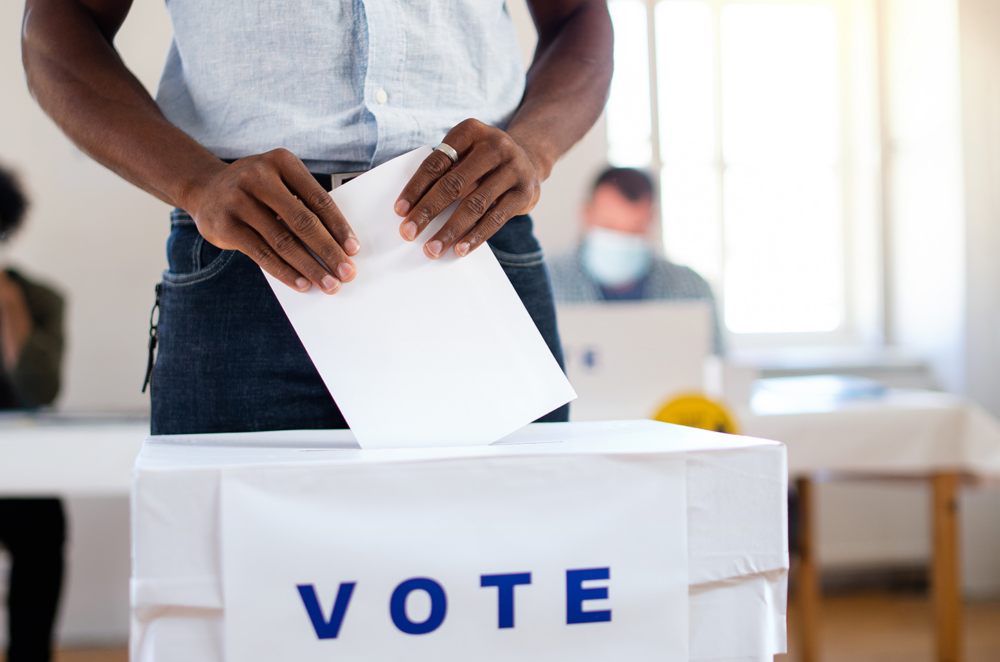Civil Rights Groups File Amicus Brief in Virginia Restoration of Voting Rights Case

WASHINGTON – Yesterday, New Virginia Majority and the national civil rights and racial justice organization, Advancement Project, filed an amicus brief in Howell v. McAuliffe, a lawsuit regarding the restoration of voting rights in Virginia. On April 22, Governor Terry McAuliffe issued an executive order that restored the voting rights of the Commonwealth’s residents who had completed their sentences for felony convictions. On May 23, Republican members of the Virginia General Assembly filed a legal challenge to the governor’s authority to restore these rights. The brief supports the constitutionality of the governor’s action and provides context for the racial dynamics involved in this case.
“Restoring the right to vote for people who have repaid their debt to society was a logical, legally-sound step taken by Governor McAuliffe,” said Tram Nguyen, co-executive director of New Virginia Majority. “More so, it was an affirmation of our democratic values – making the Commonwealth and our political system more open, accessible and representative. We are pleased to help support these claims to the court.”
Virginia previously had one of the harshest disenfranchisement laws in the nation. The original purpose of the law was plainly stated by Delegate Carter Glass at the Virginia Constitutional Convention of 1902. “This plan,” Carter Glass said, “will eliminate the darkey as a political factor in this state in less than five years, so that in no single county…will there be the least concern felt for the complete supremacy of the white race in the affairs of government.” Until Governor McAuliffe used his authority to address this, the modern version of the law continued to make it disproportionately harder for people of color to participate in Virginia elections.
“Denying voting rights to people with prior felony convictions was an explicit scheme to eradicate Black voters from Virginia’s electorate,” said Judith Browne Dianis, executive director of Advancement Project’s national office. “The idea of now taking away the right to vote for the more than 206,000 Virginians who regained voting rights under Governor McAuliffe’s proclamation would be extremely problematic, especially for African-American voters. Rescinding this right to vote from citizens properly registered under the law would likely constitute a purge, which would be illegal.”
“This has been a long process,” said Terry Garrett, a formerly incarcerated individual whose rights were restored by the Governor’s executive order. “I paid my fines, did my time, got off probation and parole for five years before I applied and was still rejected twice. Then, I heard about what Governor McAuliffe did. I realized my rights had been restored. I was devastated and excited at the same time because I felt like somebody believes in us. I felt like a citizen again. I’ve been in Alexandria all my life but never felt like I was a part of the community. Now I have a voice too. I did make some mistakes that I regret but it is challenging every day to hear about what you did so many years ago and still have it affecting your life today. I’m just grateful to have my rights back and I would do everything in my power to keep them.”
“When I found out that I was eligible to vote, I was elated because I am a taxpaying, law-abiding citizens and I should have the right to dictate who represents me,” said Richie Cannady. “When I found out that there was a challenge to my right to vote, I thought it was really sad and shameful. Being able to vote is an important part of being American.”
“I was overwhelmed with tears when I found out that I could register,” said Louise Benjamin. “I felt like I could finally get my life back on track and be somebody.”
“When I found out I had my right to vote restored, I was grateful because I wanted to have the same opportunities that others do,” said Viola Marie Brooks. “When I found out about the challenge to my right to vote, I thought it was wrong. I made a mistake and I paid for it, and I am a changed person.”
In addition to supporting the governor’s constitutional authority to restore voting rights, the brief submitted yesterday addresses holes in the legal theory and evidence petitioners have provided to support their claims against McAuliffe’s action. Importantly, the brief also highlights the emotional process of having one’s rights restored through personal narratives – underscoring the unfairness of once again depriving newly eligible voters of their right to the ballot. According to The Sentencing Project, more than seven percent of Virginia’s adult population was disenfranchised due to a felony conviction. Moreover, one in five African-Americans in Virginia had been disenfranchised due to a felony conviction in recent years.
“The restoration of voting rights is deeply personal for the 206,000 people whose voices have just been welcomed back into our democracy,” said Advancement Project Managing Director and General Counsel Edward A. Hailes, Jr. “It is deeply personal, too, for all who believe in the values of a just, fair and inclusive democracy.”
The full brief can be viewed here. A special hearing on the case will take place on July 19, 2016. For more information or requests for interviews, please contact Jennifer Farmer at jfarmer@advancementproject.org.
###
Advancement Project is a multi-racial civil rights organization. Founded by a team of veteran civil rights lawyers in 1999, Advancement Project was created to develop and inspire community-based solutions based on the same high quality legal analysis and public education campaigns that produced the landmark civil rights victories of earlier eras.